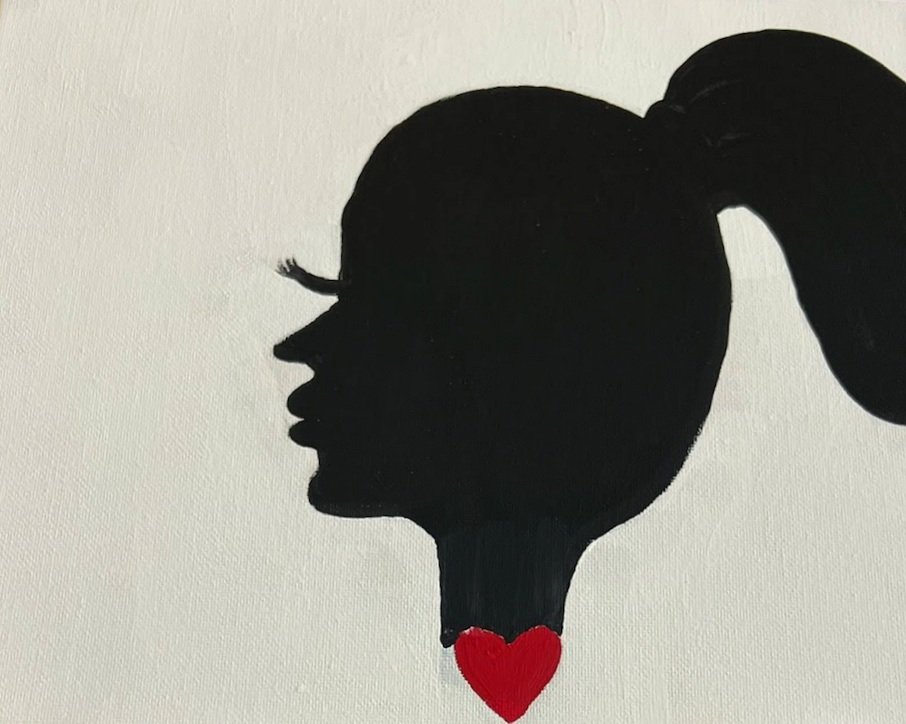Patriarchy & Sexual Health
Written and researched by Tomei Kuehl.
Accompanying artworks selected in partnership with Talia Cardin, youth facilitator to the Youth Sexual Health Program Board.
Self
by Itzel Rodriguez, a student at AUL Denver
“Females are a lot more than what’s on the outside. Some people just hit it and quit it, not realizing that they have feelings on the inside. This can cause insecurities and questioning themselves, so they start getting less intimate. I think we should be more considerate of human feelings.”
Patriarchy:
“Patriarchy, like any system of domination (for example, racism), relies on socializing everyone to believe that in all human relations there is an inferior and a superior party, one person is strong, the other weak, and that it is therefore natural for the powerful to rule over the powerless. To those who support patriarchal thinking, maintaining power and control is acceptable by whatever means.”
– bell hooks
“Patriarchy has no gender.”
– bell hooks
Sex education serves to maintain the social order and reinforce stereotypes in the name of preventing the spread of disease. For example, the early “social hygiene” movement used morality to protect traditional marriage and combat social ills. Many of the sex education teachings assume women have no sexual desire, with procreation being the only purpose of sex. The goal of sex education was to educate men to protect women (SIECUS, 2021). And the womanhood protected was always white (Shah, 2015). Additionally, men were encouraged to spend time with other men to avoid sexual temptation; however, women were told not to spend too much time together as it would encourage lesbianism.
Welcome to Womanhood
By Victoria Cordova, a student at AUL Denver
“Being a woman or someone who is female presenting, you often hear and see many disgusting things based on your gender or appearance. My inspiration came from things I’ve personally heard, things I’ve heard others called, and general stereotypes against women. Living in the world we live has been difficult growing up as a girl, and I think it’s important to bring attention to the things we experience, so I asked my mom, my sister, my best friend and I researched to find common stereotypes and disgusting things we’ve all heard and experienced. I used digital art as a medium to create a sign with a bunch of phrases and I used the sign as a metaphor to say ‘take this as a sign to learn what we (women) experience.’ I’m sick of having to fight against the patriarchy and stereotypes; and I’m even more sick of having to fight for our rights. Women’s rights are human rights.”
-
SIECUS (Sex Education for Social Change). (2022, March). Federal Funding Overview: Fiscal Year 2022. https://siecus.org/wp-content/uploads/2022/05/FY22-Federal-Funding-Overview.pdf
Shah, Courtney Q. Sex Ed, Segregated: The Quest for Sexual Knowledge in Progressive-Era America. Gender and Race in American History Series. Rochester: University of Rochester Press, 2015

